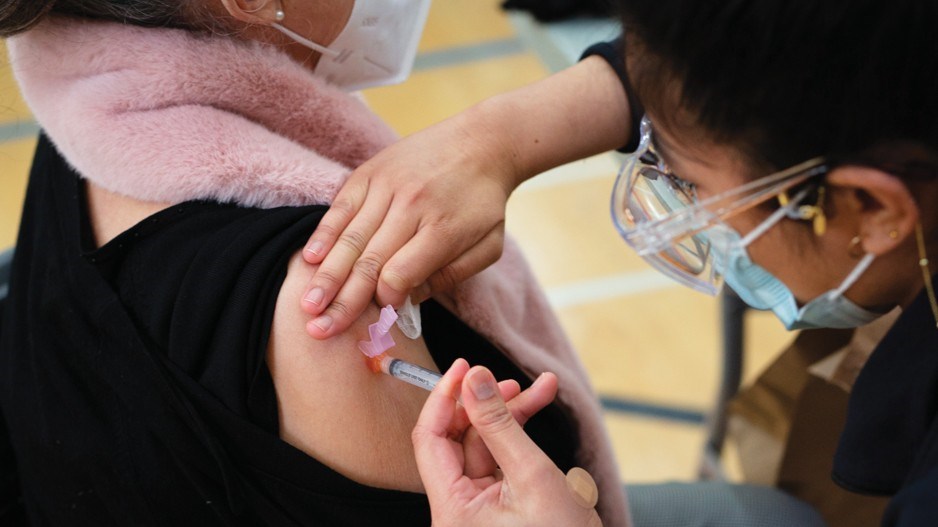Seniors in B.C.’s long-term care and assisted living residences can expect to get their COVID-19 booster shots beginning next week, according to the province’s top doctor.
“We know that our seniors and elders have carried a heavy burden,” provincial health officer Dr. Bonnie Henry said during a Tuesday briefing.
Health officials have determined six months after the second shot of a COVID-19 vaccine “is probably the best time” to administer booster shots to such residents, who have weaker immune systems that the population at large, according to Henry.
She also confirmed the province’s immunization teams will provide influenza shots to these residents along with the COVID-19 booster shots.
But B.C.’s top doctor said it was not a matter of “when” the population at large might receive booster shots, but “if” they will need them.
“We’re not seeing a need for a booster dose for most of us right now and we’re going to continue to monitor that,” Henry said.
“Right now we have very strong protection.”
Meanwhile, Henry cautioned cases of COVID-19 were going up “quite dramatically” among younger age groups, especially school-aged children not eligible for vaccinations.
She said this is particular prevalent in the Fraser Valley East region, where vaccination rates are lower.
Starting Monday, a new health order goes into effect in the communities of Hope, Chilliwack, Abbotsford, Mission, and Agassiz-Harrison.
Private gatherings will be limited to five additional people or one individual household, while outdoor adult sports will be limited to 50 participants, unless all are vaccinated.
Outdoor events will be limited to 10 people unless all are fully vaccinated and organized events such as weddings or business conferences will be limited to 10 people indoors or 50 people outdoors. But exceptions will be made in the event everyone is vaccinated.
Henry emphasized that in these instances, the newly deployed B.C. vaccine card will be relied on to prove participants’ vaccination status.
Furthermore, masks must be worn in workplaces in Fraser Valley East unless workers can observe social distancing, occupy a room by themselves or stand behind a barrier.
“These are the things we do for those we love and for those we don’t know,” Henry said.
Beginning Monday, regional health authorities will start posting K-12 potential exposure events on their websites. Unlike last year, health officials will not be sending out letters to schools if there is an exposure.
“This virus has changed,” Henry said.
“We know it’s transmitting more rapidly, particularly to those who don’t have the protection that vaccination offers.”
Henry spent an extended period during Monday’s briefing outlining the efficacy of the vaccines regardless of whether people had mixed doses of the two mRNA vaccines – Pfizer Inc. and Moderna Inc. — or the AstraZeneca plc dose.
She said any two doses have proven effective, no matter the combination.
But the mixing of vaccines — a tactic B.C. used to expedite widespread vaccinations — might create some problems for British Columbians wishing to travel internationally into countries that don’t accept the practice or one of the vaccines approved for use in Canada.
“I know there’s a lot of concern about acceptance of mixed vaccine schedules around the world,” Henry said.
“We continue to work with our colleagues in Health Canada and internationally to make sure that the mixed vaccine schedules are going to be accepted.”
Henry said the province will not be providing people with a third dose because “things are in flux around the world” and that restrictions might change as more evidence is presented to decision-makers.



